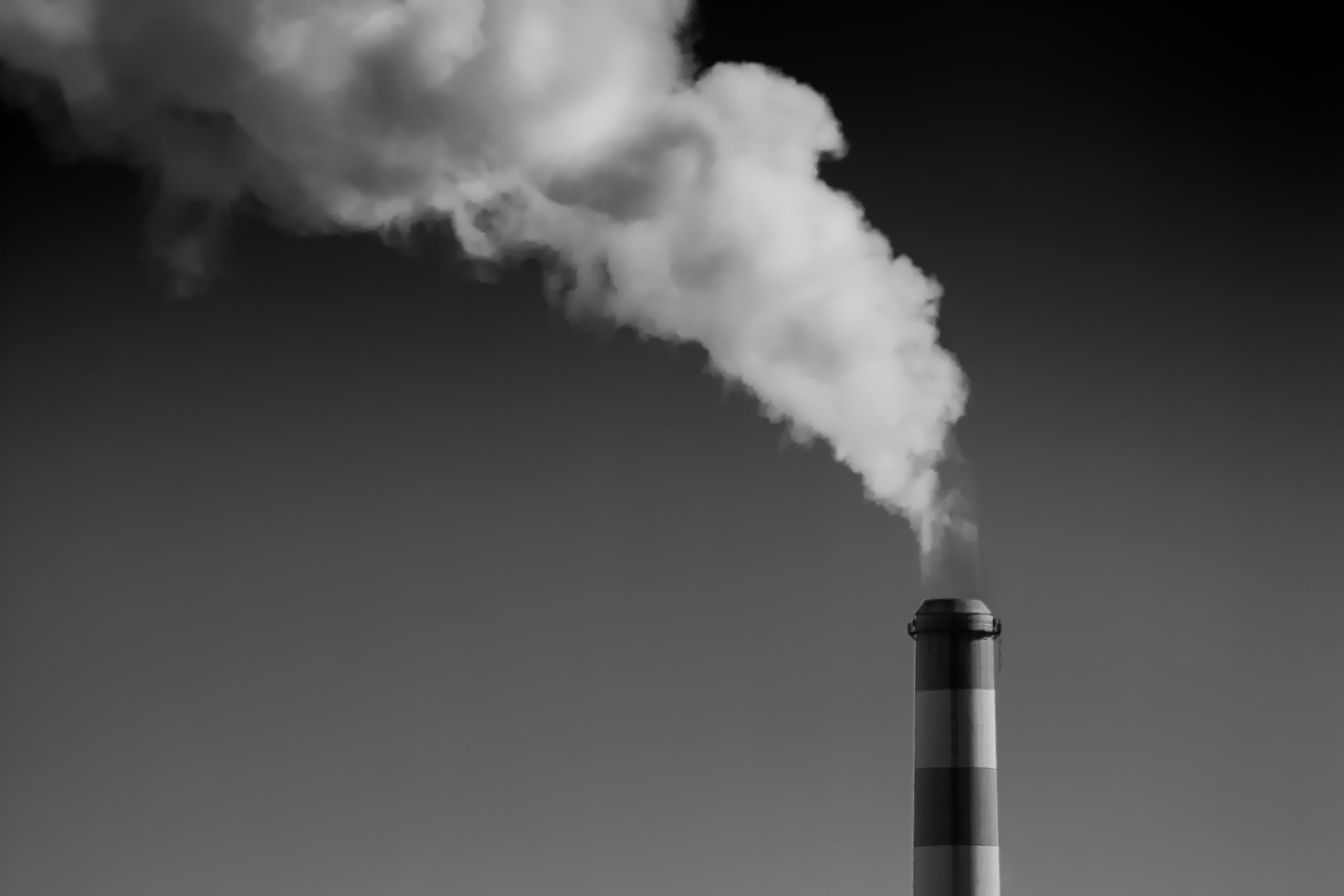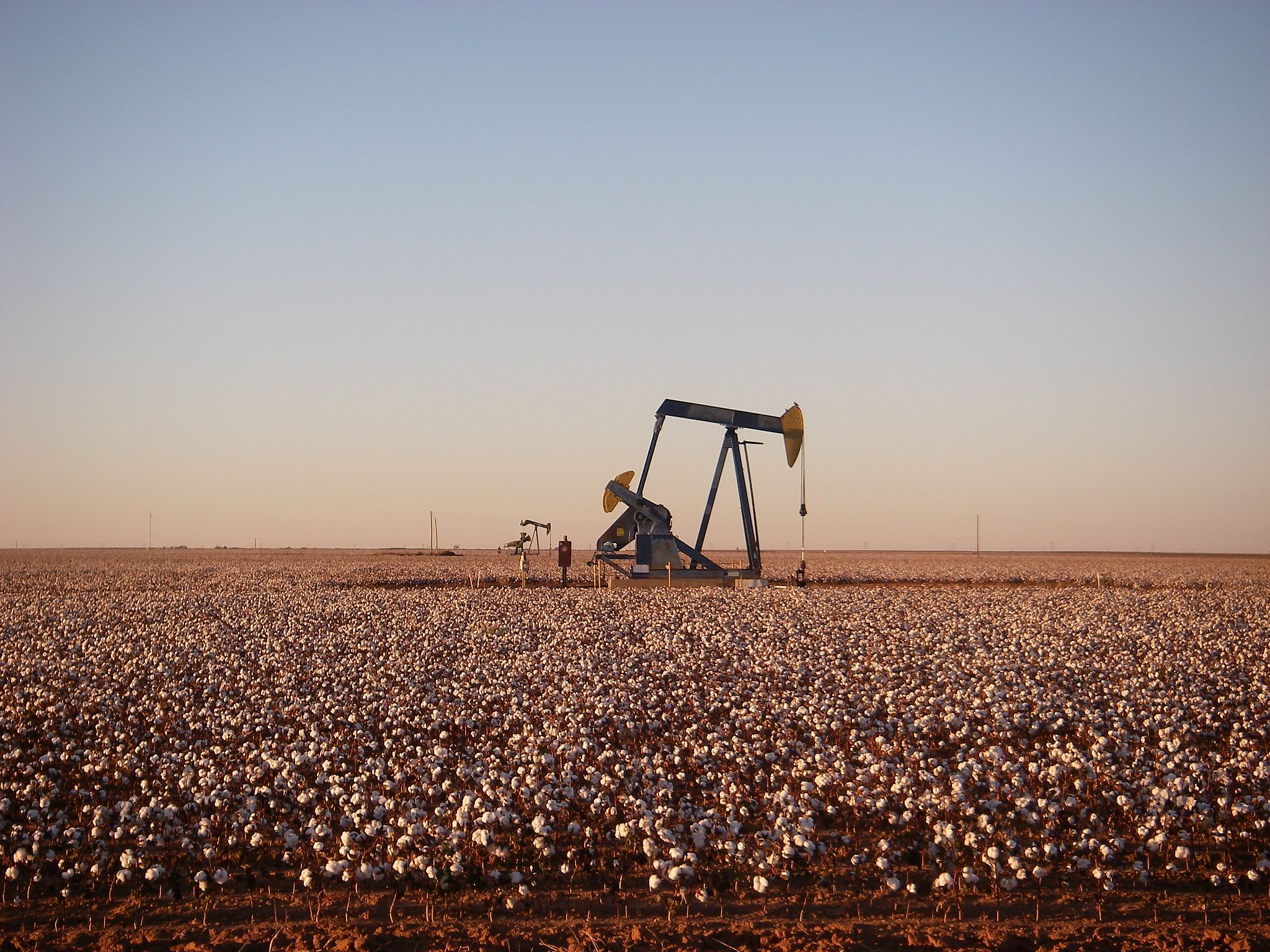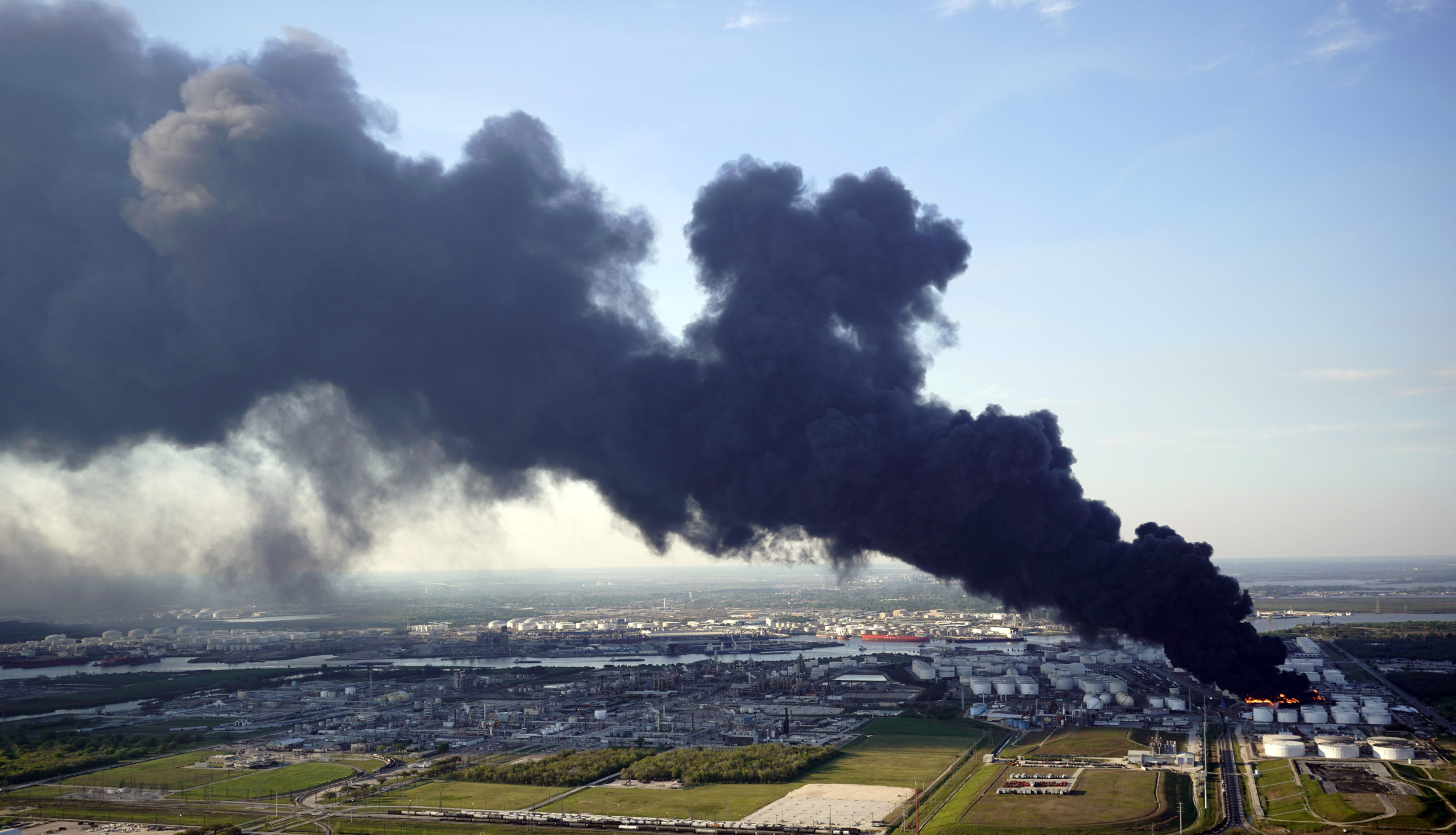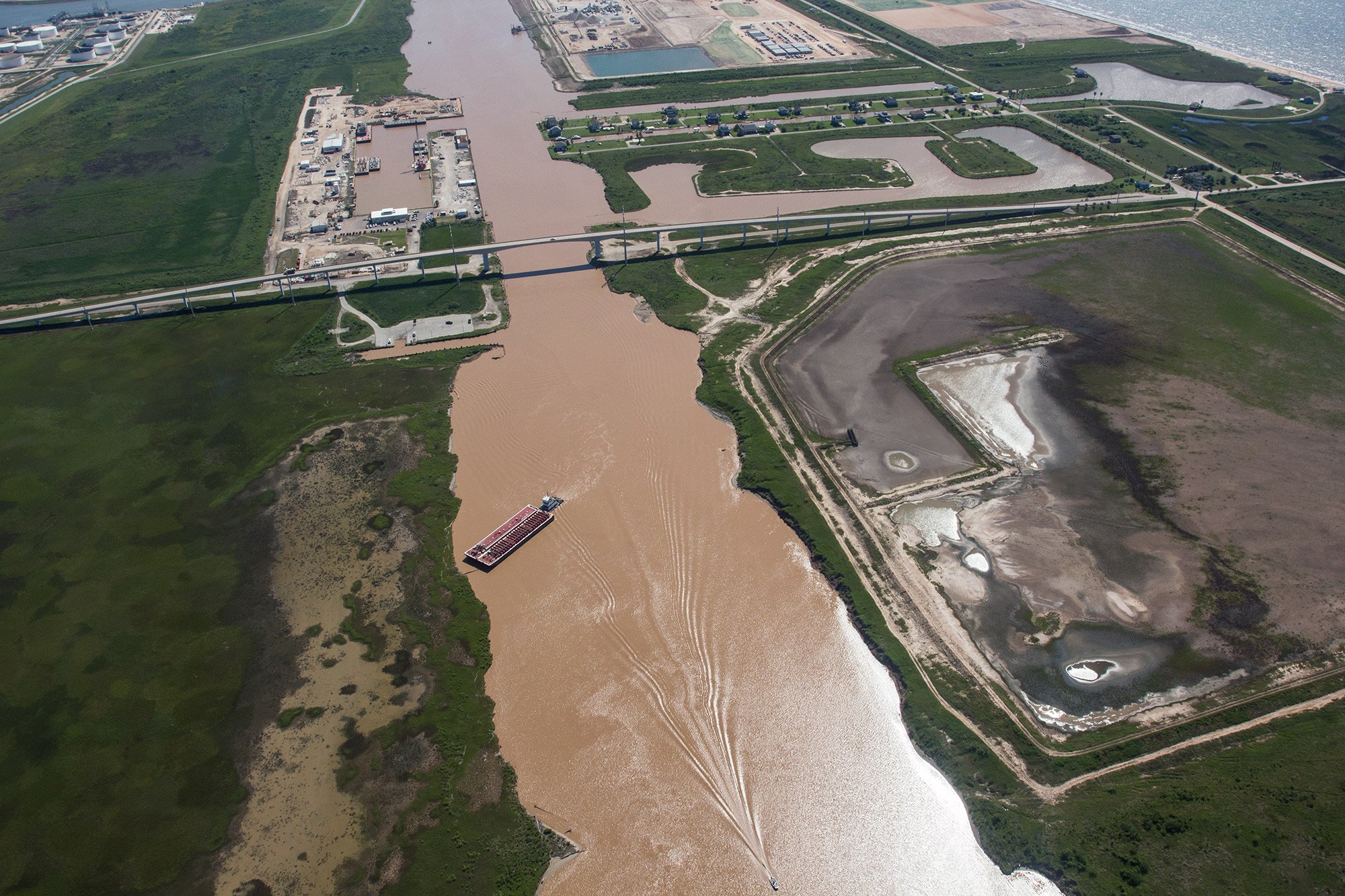
Dirtying the Waters: Texas Ranks First in Violating Water Pollution Rules
A new report raises questions about whether TCEQ is doing enough to protect the state’s water.

Above: Intracoastal waters in Quintana and Freeport.
Texas has a dirty secret. Its industries are routinely violating environmental laws by dumping excess chemicals and human waste into its rivers and bays, often without consequence. At least that’s the finding of a new report by Environment Texas, which shows almost half of Texas’ major industrial facilities violated their wastewater permit by pumping excrement, oil, grease and a range of other chemicals into the state’s waterways. Texas Commission on Environmental Quality’s (TCEQ) lax enforcement of air pollution standards is already well documented, but the new analysis raises questions about whether TCEQ is doing enough to protect the state’s water.
For instance, between January 2016 and September 2017, Ineos USA’s facility in Brazoria County violated their permit to dump wastewater into Chocolate Bayou eight times. In all cases, the company released waste with high levels of E. coli, a bacteria that indicates the presence of feces. The facility has been out of compliance with the Clean Water Act a total of 12 months out of the last three years. TCEQ hasn’t fined the facility once.
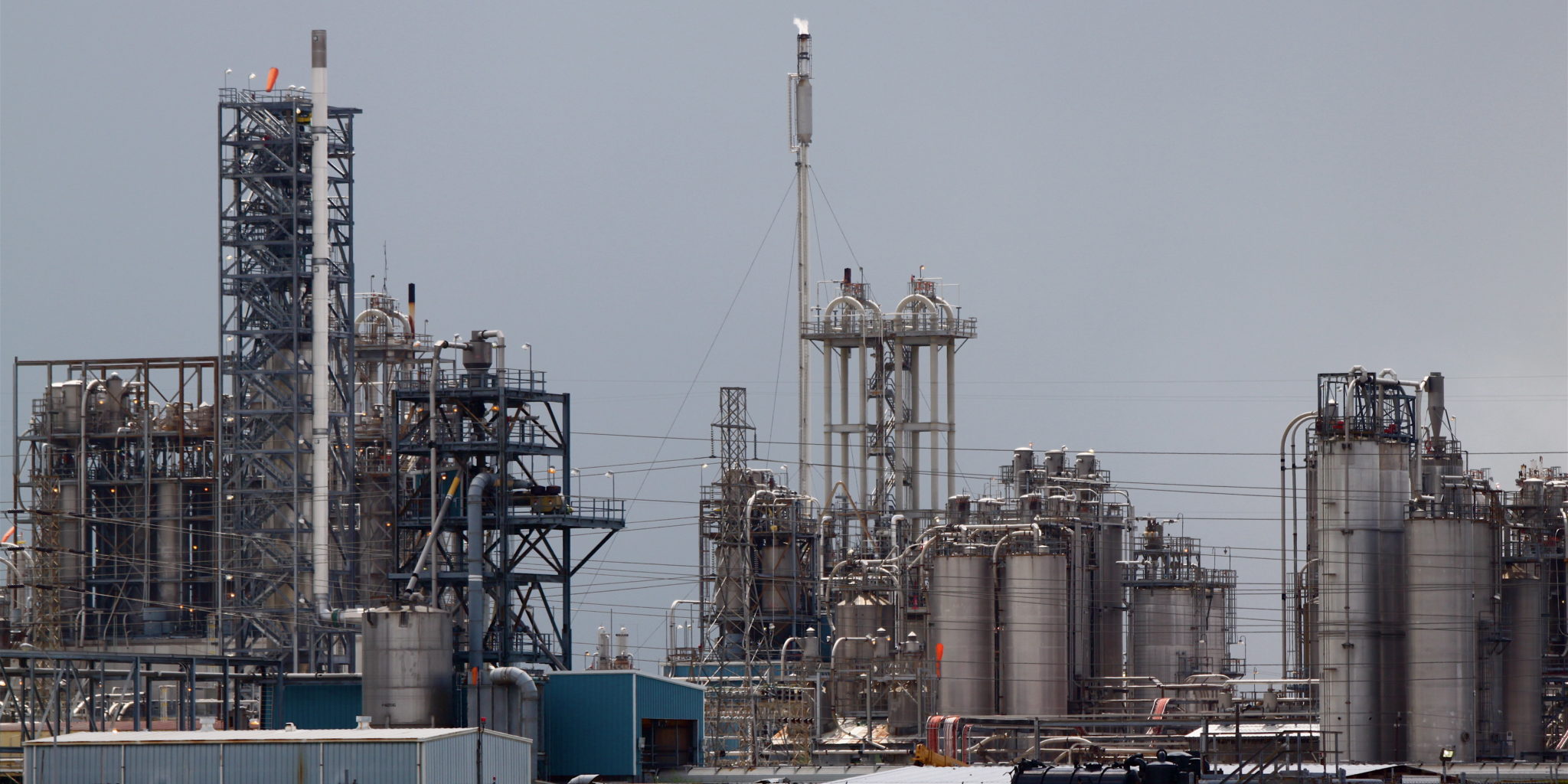
The Ineos plant, which produces polymers used in making pipes and pharmaceuticals, is one of 132 industrial facilities out of 269 in Texas that violated their wastewater permits, according to the Environment Texas report. Researchers found that over 21 months in 2016 and 2017, industrial facilities exceeded pollution limits 938 times — the highest in the nation. In about a third of the cases, these facilities — including refineries, city wastewater treatment plants and chemical companies — dumped waste into rivers, lakes and bays that the EPA has already classified as “impaired.”
“TCEQ has a lax enforcement regime,” said Luke Metzger, executive director of Environment Texas. “That contributes to the high exceedance levels. Many facilities don’t have any pressure to comply with the permits.”
Last month the Observer published an investigation on the disparity in TCEQ’s enforcement between large corporate polluters and small business owners. It found that refineries and petrochemical plants with the resources to fight fines were hardly ever penalized for emitting harmful pollutants into the air while immigrant mom-and-pop gas station owners received several thousand dollars in fines, largely for recordkeeping violations. The new Environment Texas report underscores that disparity by highlighting how industrial polluters contaminate waterways and are often let off with a slap on the wrist.
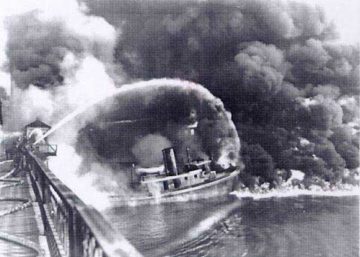
Andrea Morrow, a spokesperson for TCEQ, said that companies report when they exceed the limits of the permit and that the agency “routinely monitors” data submitted by the companies for violations. “When violations are serious enough to warrant formal enforcement action, the TCEQ is authorized to enforce correction of the violations and to seek penalties to deter future noncompliance,” she said.
The Clean Water Act became federal law in 1972 in part in response to the Cuyahoga River in Ohio catching fire. The landmark environmental law set a national goal of eliminating discharge of pollutants into waterways by 1985 — one that has yet to be reached.
As expected, regions with heavy industrial activity had a higher number of polluters. Almost two-thirds of the 938 cases of wastewater violations involved facilities located in Jefferson, Nueces and Harris counties — home to Port Arthur, Houston and Corpus Christi, where the state’s largest industrial operations reside.
Across the state, companies are dumping excess pollutants into rivers that are already struggling, which will extend the recovery process and be detrimental to the aquatic species and people who use it for recreation, Metzger said. For example, the Neches River, which is one of the dirtiest and most polluted rivers in the state and parts of it have been designated as “impaired” by the EPA, is one of the most common sites where polluters dumped toxic waste.
While the report hints at weak accountability for repeat corporate offenders, it’s not yet entirely clear whether some pollution cases will result in fines. Since the researchers looked at violations in 2016 and 2017, it’s too early to say whether TCEQ will choose to issue fines in some cases, which can take several months to years. Still, Metzger said that based on the companies’ poor compliance history and TCEQ’s lax enforcement record, it seemed likely the facilities would face few repercussions.
And some context: Texas likely has the highest pollution ranking because it has a large number of industrial facilities. However, the state also ranks first in facilities that exceeded pollution standards multiple times and for facilities that broke permitted limits seven times or more.
“Many facilities don’t have any pressure to comply with the permits.”
The report notes that there’s been a decrease in federal enforcement under the Trump administration, both in the number of cases the EPA is pursuing, as well as the fine amounts issued. In the first six months of the administration, the agency collected 60 percent less in fines compared with under Obama, Bush and Clinton.
The problem is likely to get worse. The administration has proposed reducing the EPA’s budget for civil enforcement by $30.4 million for 2019. The federal budget that pays for grants assisting states in reducing water pollution has also been slashed by about 20 percent for 2018 and 2019. Those budgets cuts, combined with TCEQ’s history of turning a blind eye to repeat corporate polluters, will worsen water quality in the state, said Metzger.
“Before, at least TCEQ had to report to EPA and there was that threat of removing delegation from the state hanging out there,” he said. “That doesn’t seem to exist any more.”
